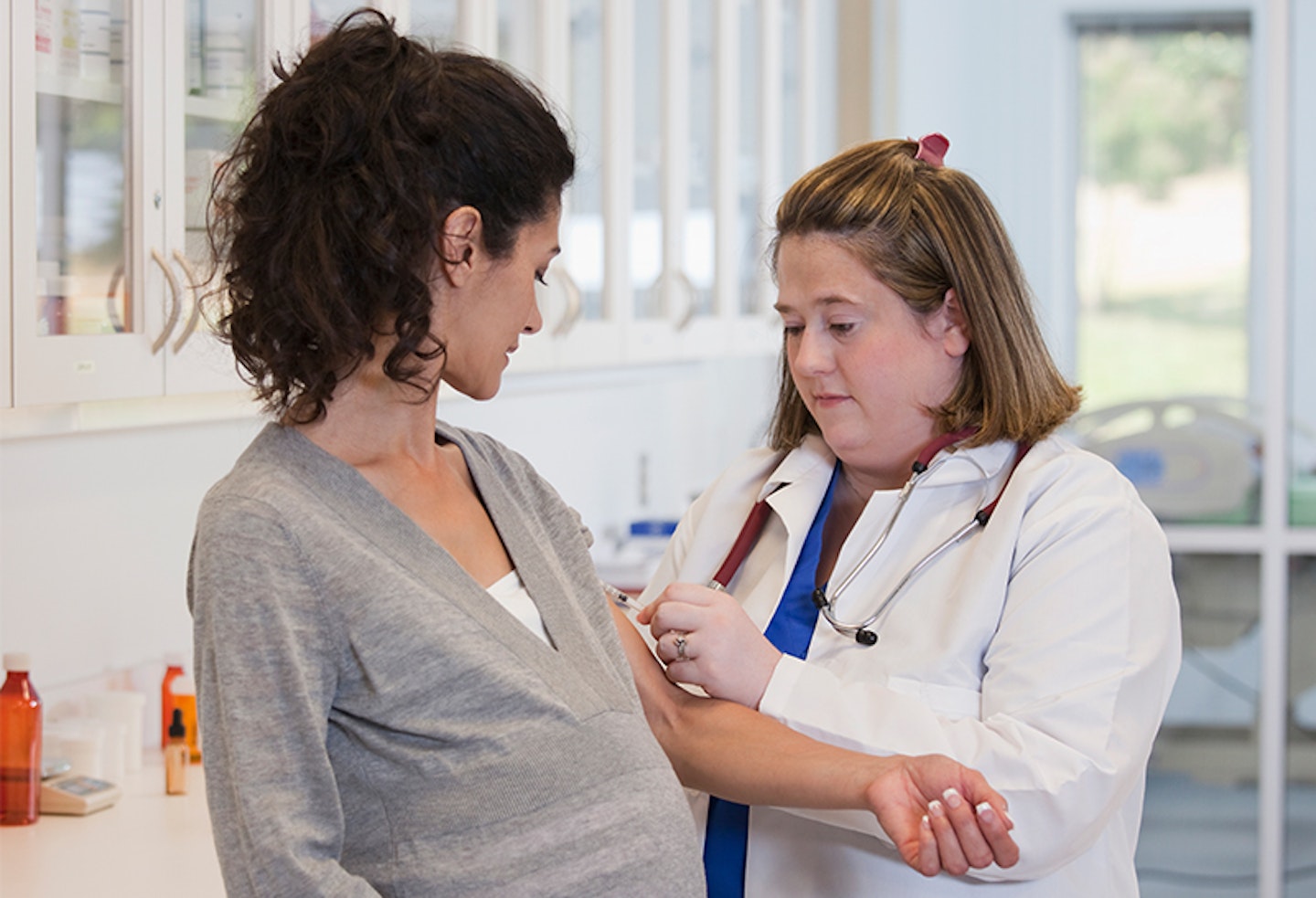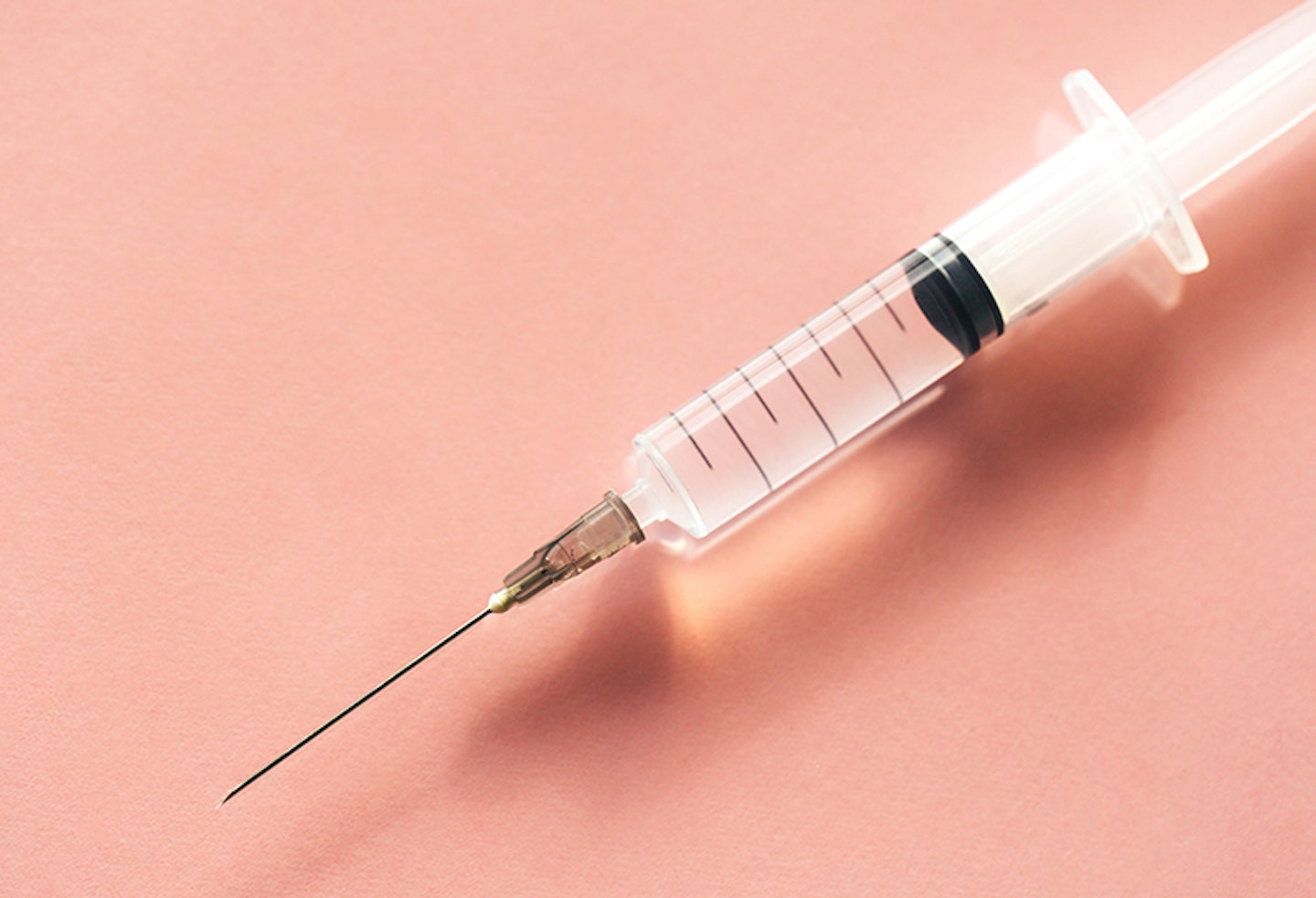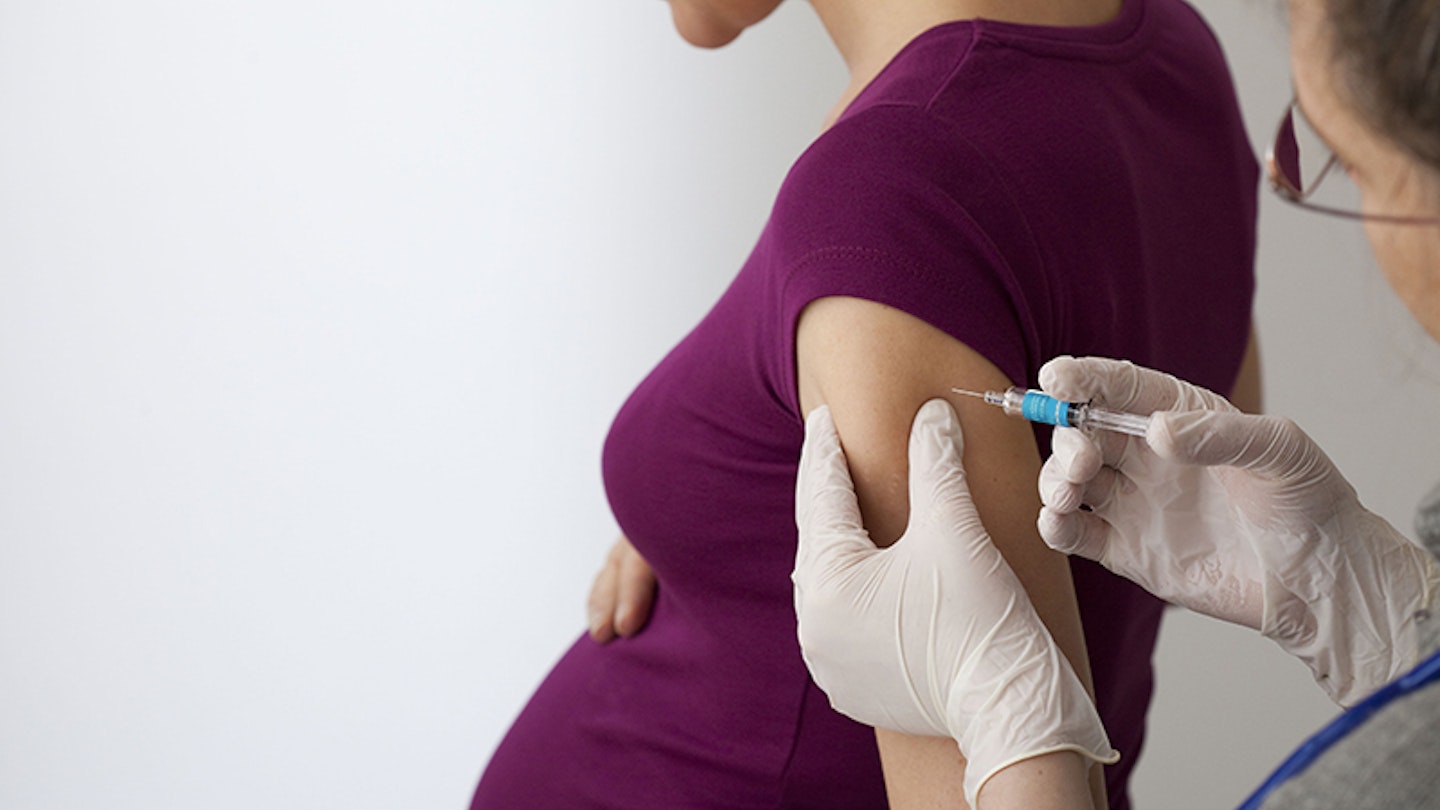As a mum-to-be, you want to do everything in your power to protect the health of your baby.
There are a few vaccines that you will be advised to get during pregnancy, that will not only protect your own health but your baby’s too. These vaccines are inactivated, which means they don’t contain a live version of the virus, therefore neither you or your baby are at risk of becoming infected.
"You should never give a pregnant woman a live vaccine," says obstetrician and gynaecologist Dr Ellie Rayner, founder of The Maternity Collective.
"Live vaccines contain a live version of the virus, for example, the MMR vaccine, and it could either cause you or your unborn baby to become infected."
Here we decode what vaccinations you need to get and avoid during pregnancy.
What vaccines are recommended during pregnancy?

Flu vaccine
The flu vaccine protects both you and your baby. Catching the flu can be serious for pregnant women, because your immune system is weakened to protect your pregnancy, therefore your body is more susceptible to catching it.
"Particularly in the later part of your pregnancy you're more likely to suffer with a severe flu and have complications because your bump is bigger, which makes breathing more difficult," says Dr Ellie.
"Flu can also cause harm to your baby; they can have a low birth weight, be born prematurely and very very rarely it can cause a stillbirth. It’s dangerous to pregnant women, which is why they are included in the recommended groups that are eligible for a free flu vaccine."
You can organise your flu vaccine by contacting your GP or midwife. You can also have it at any point during your pregnancy and you must get it every year.
The best time to have it is in the autumn, before the virus starts circulating, but don’t worry if you’re unable to do this, just make sure you book in for it as soon as you can. The NHS also says the flu vaccine is also safe for women who are breastfeeding.
"There's also good evidence that it protects both mums and babies," says Dr Ellie. "There will be some immunity passed to your baby because you'll make antibodies which you'll then pass through the placenta to your baby, so they'll have some protection from flu when they're born."
Dr Ellie also notes that side effects can include a slight rise in temperature and achy muscles, which may last for around a day. However don’t panic, it's just how your body is reacting and fighting in a new response but you haven't been given the flu.
Whooping cough vaccine
This is a bacterial infection of the lungs and tubes and a very serious condition that can affect babies.
The vaccine is purely to protect your baby as whooping cough doesn’t affect pregnant women.
"You're not having this vaccine to protect yourself, you're having it so you will develop antibodies that you’ll then pass through the placenta into your baby's bloodstream, so that when they're born they're protected from whooping cough," says Dr Ellie.
Babies can become very unwell with whooping cough; it can lead to brain damage, pneumonia and in the most severe cases, even death.
The vaccine is offered to women between 16 and 32 weeks of pregnancy. "The reason for that is because that's the optimum time for you to make the antibodies and for them to pass to your baby," says Dr Ellie. "So once they're born they've got the protection ready to go up until they can have their first whooping cough vaccine, usually about 8 weeks old."
If you do miss this window for the vaccine still get it, as the NHS says you can have it up until you go into labour. However, it is worth noting if this is the case, your baby is less likely to have protection from you.

COVID-19 vaccines
If you haven't already, you should consider booking to have your coronavirus vaccination. It's also important to keep up to date with the subsequent boosters too (the latest is the autumn booster vaccine 2023). This is because while pregnant, you are in the clinic risk group and are at a higher risk of getting seriously poorly from COVID-19, especially if late into your pregnancy as your baby could be at risk. Vaccine uptake in pregnant women was 35.0% last year, compared with 37.9 % in 2021 to 2022.
It's safe to have the vaccines during any stage of pregnancy, from the first few weeks up to your expected due date. There's no evidence COVID-19 vaccinations increase the risk of having a miscarriage, pre-term birth or other complications in your pregnancy.
What vaccines should I avoid during pregnancy?
Pregnant women should never be given live vaccines as you and your unborn baby can run the risk of catching the infection. Live vaccines that should be avoided during pregnancy include:
• MMR vaccine (measles, mumps and rubella)
• Yellow fever
• GCB (vaccination against tuberculosis)
• Oral polio
• Oral typhoid
What if I’m pregnant and travelling to a different country?
Travel vaccines, such as yellow fever, contain a live version of the vaccine, therefore pregnant women are advised to avoid travelling to countries where you may need one of these.
However, if you can’t avoid going to the country, Dr Ellie says you’ll need to arrange to speak to your GP, midwife or obstetrician.
'If for whatever reason you can't avoid travelling to the area while pregnant it's important to have a risk and benefit discussion with your doctor to decide if it is worth taking the chance and the risk of having a live vaccine, rather than getting the infection itself.'
Meet the expert
Dr Eleanor Rayner is an Obstetrics and Gynaecology specialist doctor working full time in Devon and founder of The Maternity Collective. After obtaining her Bachelor of Medicine, Bachelor of Surgery degree from the University of Exeter she has worked across multiple hospitals within the South-West and has achieved her full Membership Qualification to the Royal College of Obstetricians and Gynaecologists.
Emily Gilbert is the Features & Reviews Editor for Mother&Baby and has written for the website and previously the magazine for six years. Specialising in product reviews, Emily is the first to know about all the exciting new releases in the parenting industry.
